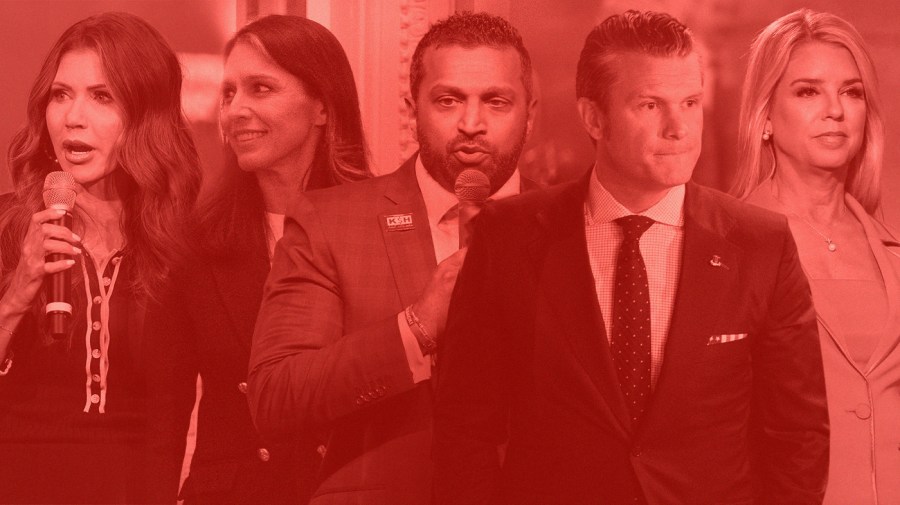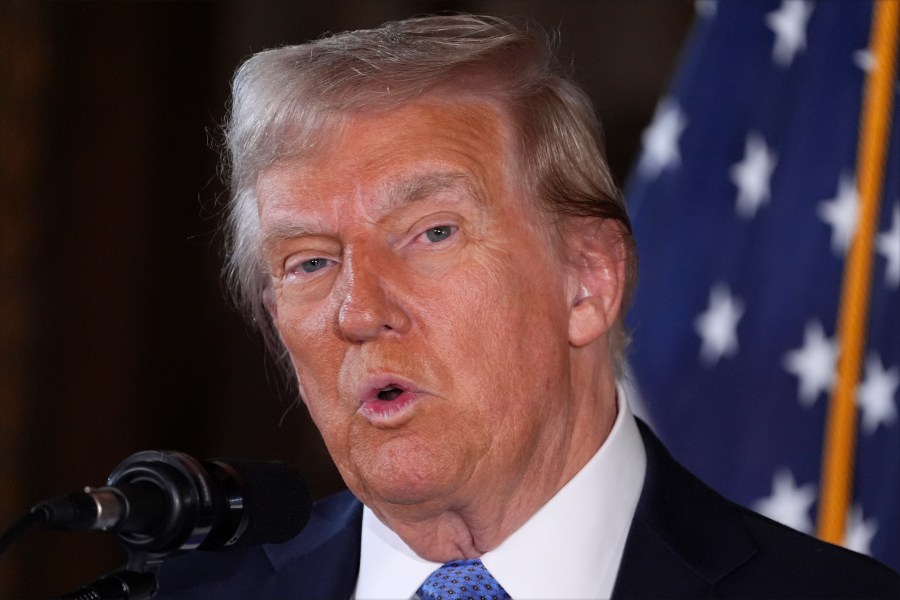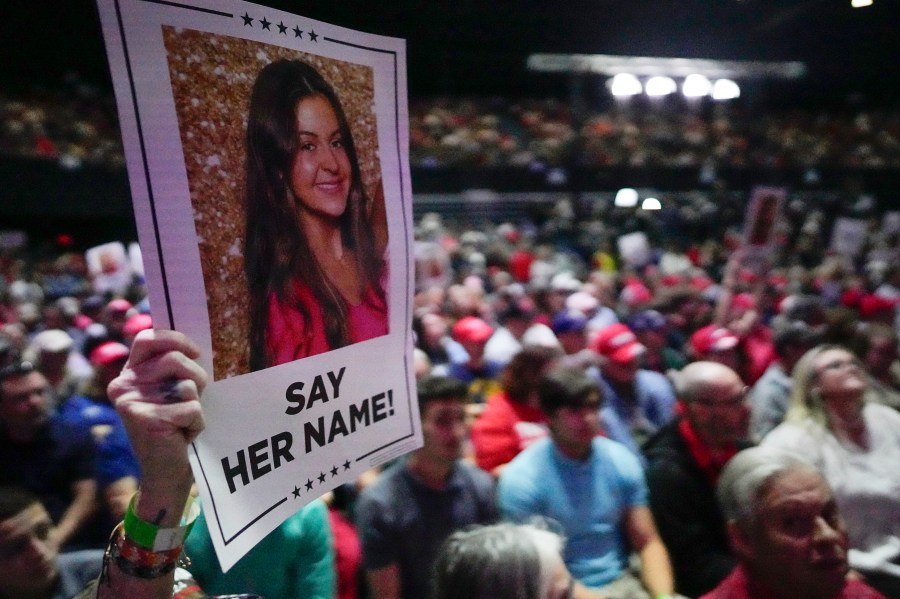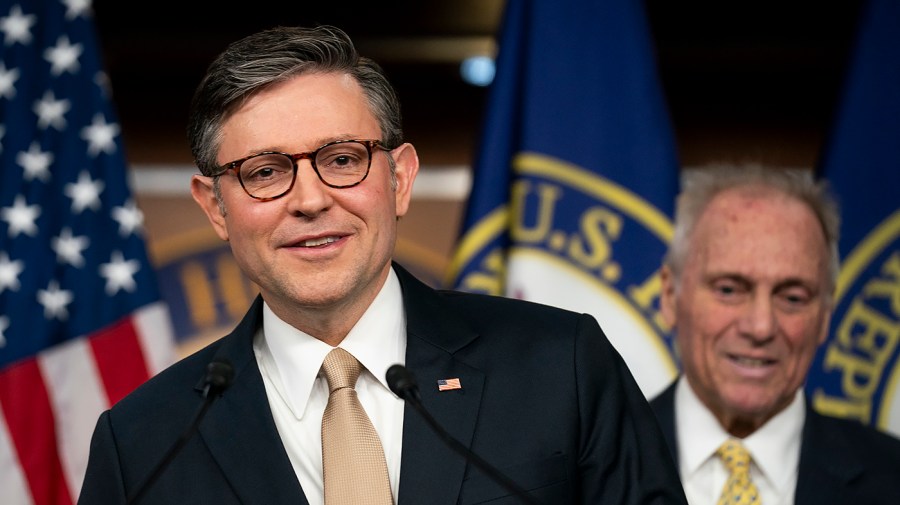
FBI checks, ethics paperwork threaten to slow down Trump confirmations
Republican sources on Capitol Hill warn that President-elect Trump’s nominees may be delayed because of paperwork holdups and the slow start of FBI background checks, creating obstacles for the speedy confirmation of Trump’s national security team.
Senate Republican leaders called on colleagues to swiftly confirm Trump’s national security team in the wake of the suspected terror attack in New Orleans on New Year’s Day, but those pleas for fast action are running up against procedural thickets in the Senate, where even routine business can take days or weeks to get done.
As of Thursday evening, only Pete Hegseth, Trump’s nominee to head the Defense Department, had the date of his confirmation hearing announced — Jan. 14.
Other nominees, including two of Trump’s most controversial picks — Tulsi Gabbard, who is nominated to serve as director of national intelligence, and Kash Patel, who is nominated to serve as FBI director — are in limbo at the moment.
Senate Republican aides and strategists say Gabbard’s nomination to head the nation’s intelligence agencies faces a rocky road in the upper chamber.
Meanwhile Patel appears to have enough momentum to win Senate confirmation, but his nomination will wait while the Senate Judiciary Committee moves first to process former Florida Attorney General Pam Bondi’s nomination to head the Justice Department.
“There’s been a challenge in getting completed background checks and getting the Office of Government Ethics 278 form done for nominees, and that’s slowed things down for a number of committees,” a Senate GOP aide said.
The aide said the Trump transition team’s tardiness in signing memorandums of understanding with the Justice Department to pave the way for FBI background checks and its reluctance to sign an agreement with the General Services Administration to gain access to government office space, email accounts, phones and computers have slowed down the process.
“You got to get the ethics paperwork and the FBI background check done and that’s taken longer than it should have,” the source said. “They should know better. This has a lot to do with the way the transition team has set itself to operate. It’s created some of these delays. These are self-inflicted delays.”
A Senate Democratic aide confirmed that the FBI background checks had been delayed for key national security nominees as of shortly before Christmas.
A senior Republican strategist working with the transition team, however, defended the handling of Trump’s high-profile nominees, pointing out that they are in the middle of FBI background checks and working directly with the Office of Government Ethics and departmental ethics officers to work through potential conflicts of interest.
The strategist said the late start date of the FBI background checks posed less of an obstacle to Trump’s nominees moving through the Senate quickly, arguing the length of those investigations will be more relevant to the nominees’ timelines for confirmation.
A spokesperson for the transition team did not respond to a request for comment Thursday afternoon.
Several Republican senators, including Sen. Susan Collins (Maine), a senior member of the Senate Intelligence Committee, say they want the FBI to complete full and thorough background checks of high-level nominees — especially those who would fill key national security positions — before they come up for votes in committee and on the floor.
But pressure is building on Senate Majority Leader John Thune (R-S.D.) to bring Trump’s national security nominees up for votes quickly after a high-profile attack this week on revelers in New Orleans’s historic French Quarter.
A second incident jolted the national New Year’s Day when a Tesla Cybertruck exploded outside the Trump International Hotel in Las Vegas.
Thune denounced the rampage that left 14 people dead in New Orleans as a “senseless terror attack” and called for “clear answers from the administration.”
“The threat posed by ISIS will outlast this administration, and this is a clear example of why the Senate must get President Trump’s national security team in place as quickly as possible,” he said.
Senate Republican Whip John Barrasso (R-Wyo.) echoed that call.
“The U.S. Senate must confirm President Trump’s national security team as soon as possible. Lives depend on it,” he posted on the social platform X.
A second Republican strategist who is helping Trump’s nominees move through the Senate said Trump advisers are leery of how the FBI and Office of Government Ethics (OGE) will handle Trump’s nominees while they are still under the influence of the Biden White House.
“From the Trump perspective, until they’re in charge of OGE, there’s concern about what OGE is going to do under a Biden administration. That was the big problem of FBI background checks. They’ve been skeptical of this FBI with this director being [in] charge of vetting Trump noms,” the source said.
The strategist also warned that Gabbard, a former Democratic lawmaker from Hawaii who sponsored legislation to repeal the Patriot Act and Section 702 of the Foreign Intelligence Surveillance Act, faces strong skepticism from Republican and Democratic senators.
The strategist said if Republicans try to derail Gabbard’s nomination, Sen. Mitch McConnell (R-Ky.) could lead the charge.
“I don’t think Republicans are as concerned about Kash,” the source said. “There’s going to be a lot of pressure to move on [the Department of Justice], the FBI, [director of national intelligence] and the CIA.”
Trump’s nominee to head the Central Intelligence Agency, former Rep. John Ratcliffe (R-Texas), is expected to move through the Senate without major opposition. He previously served as director of national intelligence from May 2020 to January 2021.
A lot will depend on how Gabbard does at her one-on-one meeting with Sen. Mark Warner (Va.), the ranking Democrat on the Senate Intelligence Committee. That meeting is scheduled to happen Monday.
The strategist said that the Trump transition team and the Senate committees do not appear to be in a hurry to move Trump’s domestic nominees given the greater focus lawmakers are putting on national security- and Homeland Security-related picks.
“There does not seem to be a rush in the HELP or Finance for the domestic nominees. I think the priority are national security nominees,” the strategist said, referring to the Senate Health, Education, Labor and Pensions (HELP) Committee and the Finance Committee.
The Senate Finance Committee has not yet announced the dates of its confirmation hearings for Trump’s picks to head the Treasury and Health and Human Services departments and to serve as U.S. trade representative.
The president-elect has tapped hedge fund manager Scott Bessent, public health advocate Robert F. Kennedy Jr. and trade lawyer Jamieson Greer to head those agencies.
Republican aides point out that other potential problems could delay Trump’s nominees.
The Senate committees can’t do business without unanimous consent until Thune and Senate Democratic Leader Chuck Schumer (N.Y.) agree on an organizing resolution to lay the groundwork for the incoming 119th Congress.
And even once nominees testify at their confirmation hearings, any one senator can delay the committee vote on the nominee by a week.
Democrats can further delay the proceedings by refusing to yield back procedural time on the floor.
But Schumer pledged in a letter to Thune last year that Democrats are willing to work in a bipartisan way to process the nominees as long as they undergo a full vetting.
“Senate Democrats stand ready and willing to work with Senate Republicans to provide advice and consent as we evaluate all of the incoming president’s nominations,” Schumer wrote.
“In particular, we commit to working in a bipartisan fashion to process each nominee by reviewing standard FBI background-investigation materials, scheduling hearings and markups in the committees of jurisdiction, and considering nominees on the Senate floor,” he pledged.



